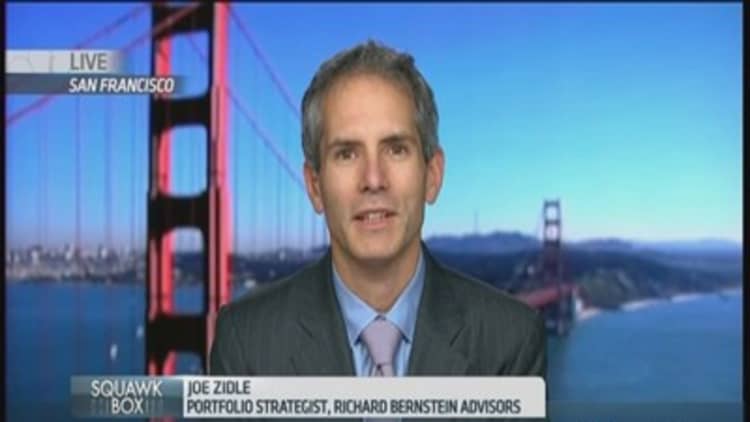Japan will spend up to $30 billion in a stimulus package to revive the country's regions but will keep new bond issuance in check, sources say, highlighting the tough balance Prime Minister Shinzo Abe must strike between lifting growth and fixing Tokyo's tattered finances.
With his landslide win in Sunday's election giving him a fresh mandate to end 15 years of deflation, Abe has pledged to push through his "Abenomics" stimulus policies including the missing third arrow of structural and fiscal reforms.
The premier instructed his ministers in November to lay out a stimulus package and plans to finalize it on Dec. 27, as part of efforts to pull the economy out of a recession caused by the hit from a sales tax hike in April.

The package, to be around 3.4-3.5 trillion ($29-$30 billion), will mainly consist of payouts to local governments and subsidies to households for fuel purchases, government and ruling party officials told Reuters on Thursday.
Read MoreJapan firms promise Abe 'utmost efforts' to lift wages, urge reforms
The Asahi newspaper reported on Thursday that Japan will spend over 3 trillion yen to revive the country's regions.
The focus on helping regional economies partly reflects Abe's intention to garner votes in local elections to be held nationwide in April.
Windfall profits
The aggressive monetary and fiscal stimulus deployed under Abe since last year has bolstered stock prices and weakened the yen, allowing big manufacturers to reap windfall profits.
Read MoreJapan 4Q manufacturing sentiment worsens: Tankan
These developments are likely to lift tax revenue in the current fiscal year, which ends in March, to 51.7 trillion yen, above initial expectations and the highest level in 17 years.
That would allow the government to issue fewer new bonds than earlier anticipated in this fiscal year, the officials said.
The government will also cut new bond issuance for the third straight year in next fiscal year's budget, they said, underscoring Abe's resolve to fix Japan's finances even after his decision to postpone next year's sales tax hike.
In a draft outline of next fiscal year's budget, the government will pledge to "do its utmost" to meet its goal of halving Japan's primary balance deficit in fiscal 2015/16.
Read More
Japan's public debt is the biggest among advanced economies, as a rapidly ageing population pushes up social welfare and medical costs.

